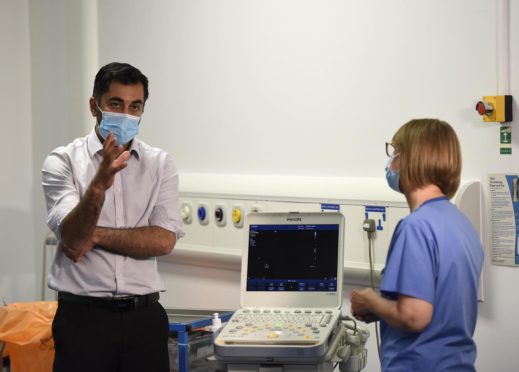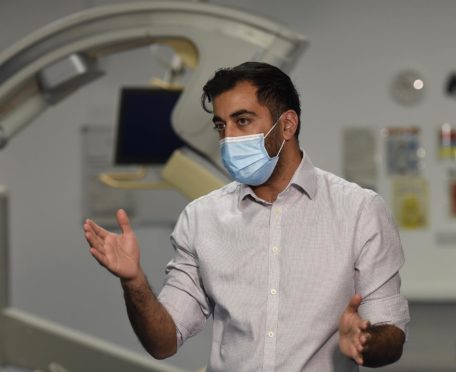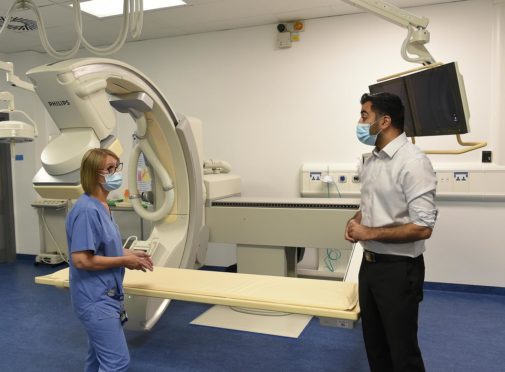New cancer waiting time statistics show Fife is falling below the national standard.
Today’s Public Health Scotland figures reveal 9% of cancer patients in Fife wait longer than three months from being urgently referred to their first treatment.
The news comes just a day after Health Secretary Humza Yousaf MSP announced a £10 million funding pot to tackle waiting times and highlighted the need for early intervention.
The national standard for Health Boards states 95% of eligible patients should wait a maximum 62 days from urgent suspicion of cancer referral to first cancer treatment.
Figures reveal:
- 81% of patients in Fife were seen within 62 days.
9 % waited longer than three months.
94% of patients in Tayside were seen within 62 days, just 1% below the standards
Across Scotland 83% of patients started treatment within the two month standard, down from 84.7% last year. The 62-day standard was met by only NHS Borders and NHS Shetland.
Figures reveal there were 199 eligible referrals in NHS Fife and 197 in NHS Tayside.
To tackle waiting times, Tayside and Fife will get almost £1.5 million of a £10 million fund, announced by Humza Yousaf yesterday to help tackle the issue.
NHS Tayside will get £781,000 and NHS Fife £681,000 from the new funding pot. Both health boards welcomed the news.
The announcement was made during a visit by the Health Secretary to Fife’s Early Cancer Diagnostic Centres (ECDC), one of the first in Scotland.
The Centre see patients with non-specific symptoms suspicious of cancer receiving a diagnosis – cancer or not – within 21 days of referral.
Both boards will now prioritise how to best use the money.
NHS Fife Medical Director, Dr Christopher McKenna, said early intervention was a focus for Fife.
He said: “We know the importance of early intervention in improving outcomes for patients with cancer.
“We want to minimise the time it takes to detect and diagnose cancers in order that treatment can be initiated as soon as possible.
“This investment, alongside the development of the new Early Cancer Diagnostic Centre in Fife, will help us improve clinical pathways for patients with possible cancers and should enable greater numbers of patients to be diagnosed at an earlier stage in the disease.”
A spokesperson from NHS Tayside said they’ll be asking services for input into how to target the cash and redesign services in line with local and regional priorities.
They added: “This will ensure we can continue to deliver high-quality, person-centred care to our patients.”
Health Secretary Humza Yousaf echoed the need for early intervention: “Limiting the impact of COVID-19 on cancer patients has been a top priority in all of our planning, with the majority of vital cancer treatments continuing throughout the pandemic.
“Our commitment to finding and treating cancer as early as possible has never been greater. The establishment of Scotland’s first three Early Cancer Diagnostic Centres demonstrates this.
“We had pledged to open three centres within the first 100 days of this Government, so I’m delighted to say we’ve delivered on that commitment.
“This £10 million will enable Boards to further recover and redesign cancer services for patients across Scotland and drive improvements in waiting times.”



